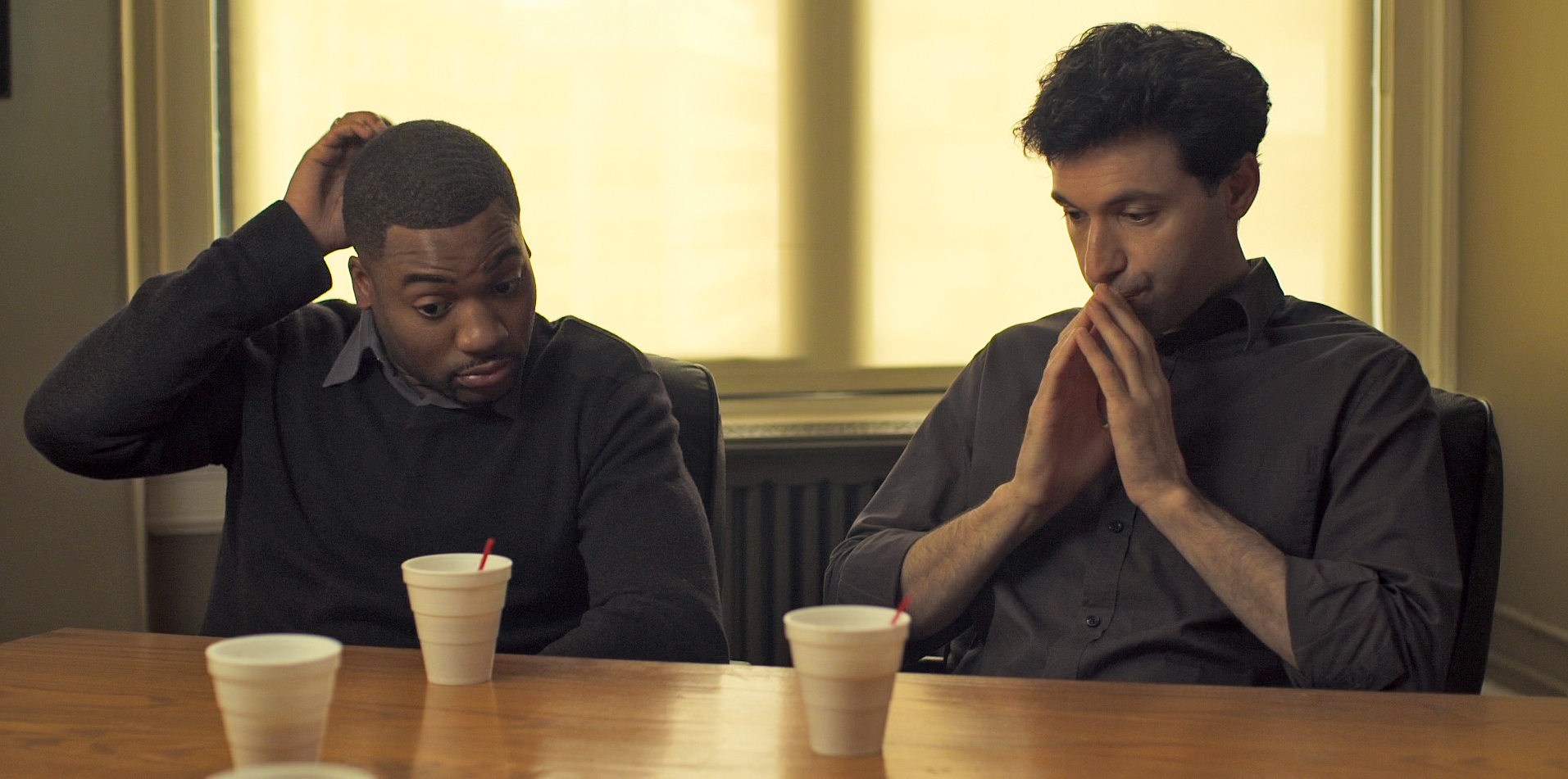In Modern Romance, Robert’s (Albert Brooks) professional life as a film editor provides an entertaining subplot and an illuminating glimpse into the flawed protagonist’s self-absorption and neurosis which prevent Robert from having a functional relationship with his on-again, off-again girlfriend. Attempts to compromise on artistic decisions in film editing — a delicate back-and-forth in which the director’s integrity and authorial presence must be preserved by the editor, and which are not unlike conversations we have with our significant spouses — is ripe for character study. This same device is employed — with less success — in Supporting Characters.
This time there are two Brooks, and neither are remotely as affecting: Nick (Alex Karpovsky) and Darryl (Tarik Lowe, who also co-wrote the script) are a best-buddy editing team employed to clean up an awful film. They’re also simultaneously experiencing marital problems, though Nick shies away from thinking or talking about the fractures and pressures in his seemingly blissful engagement with Amy (the always wonderful Sophia Takal). Darryl is clueless about his trust-barren relationship with Liana (Melonie Diaz) that is splintering before it can even eclipse the typical six-month honeymoon period.
Nick is a smart-aleck pragmatist complacent with life even as a potential crisis begins to brew: when he meets and immediately strikes chemistry with the project’s main star, Jamie (Arielle Kebbel), he plays it cool, keeping their casual encounters secret from Amy. While these rendezvous — some spontaneous and professional, others planned — never result in more than the mounting of sexual tension and a leg rubbing up against a thigh during a party, it is obvious that their friendship spells bad news for Nick’s relationship. Adultery seems too trodden a narrative device for a mumblecore film like Supporting Characters, and so Nick engages in nothing more than jocular what-if fantasy conversations with Darryl that ground the characters’ conflicting moral qualms.
Darryl is presented as the dumber but more likeable lead: he treats Liana so sweetly and is so blind to the problems inherent in their relationship his character is more reminiscent of a schoolboy trying to impress his first girlfriend than the typical mumblecore character (his trite verbiage with quarreling co-workers to make things right flimsily shows that he is prone to quick mediation outside of the bedroom, too). His perplexing decision to propose to Liana manages at least to resolve his romantic dilemma: when Liana tells Darryl she never saw herself marrying a guy like him, he knows it’s over. When Nick refuses to congratulate Darryl on his intention to propose, Darryl claims it’s because of their different cultures; Nick is unimpressed by Darryl’s use of the race card, but if anything, it’s as if the film is claiming the same thing. In a subgenre mostly teeming with white characters, Darryl’s lack of complexity as a character is more of a contrast to Nick’s better-written scenes than a genuinely nuanced examination of cultural differences between their approaches to relationships.
The climax to Nick’s predicament is a somewhat interesting, if not entirely original approach to the subject, but it doesn’t offer anything truly illuminating about gray-area boundaries in contemporary monogamy. Nick’s character is all-too-frequently presented as a witty and charming person whose waffling over potential adulterous action is depicted nonchalantly and never commented upon directly or even indirectly within the film until the very end. Presenting Nick as an affable lead for the majority of the film is maddening, but it’s actually an elegant structure for the moral quandaries posed. Through Nick’s character,Supporting Characters sneaks in a critique of the modern romance with an actor whose vocal mannerisms and cadence naturally exude condescension and befit the part. In the end though, Karpovsky may have his moments, but more often than not he sounds like a smarter David Schwimmer who does a lot of mansplaining. It may be the perfect combination for the role, but it easily tires.
Besides the fact that Supporting Characters shrouds its comedy in somewhat-racist undertones, the film’s less problematic — but still annoying issue — is that it carries the visual quality and editing rhythm of television. Mumblecore has somehow elevated digital video into an attractive aesthetic, but Supporting Characters thwarts that mighty ambition by reeling back into a contrived sitcom tone that never quite feels right.

